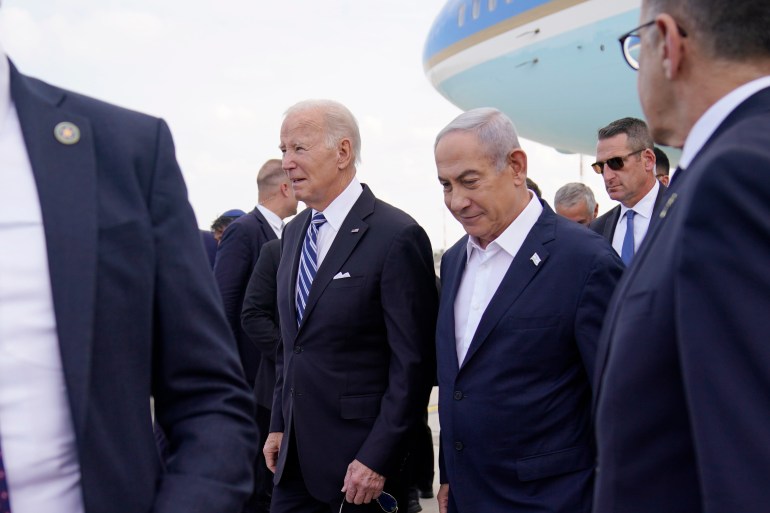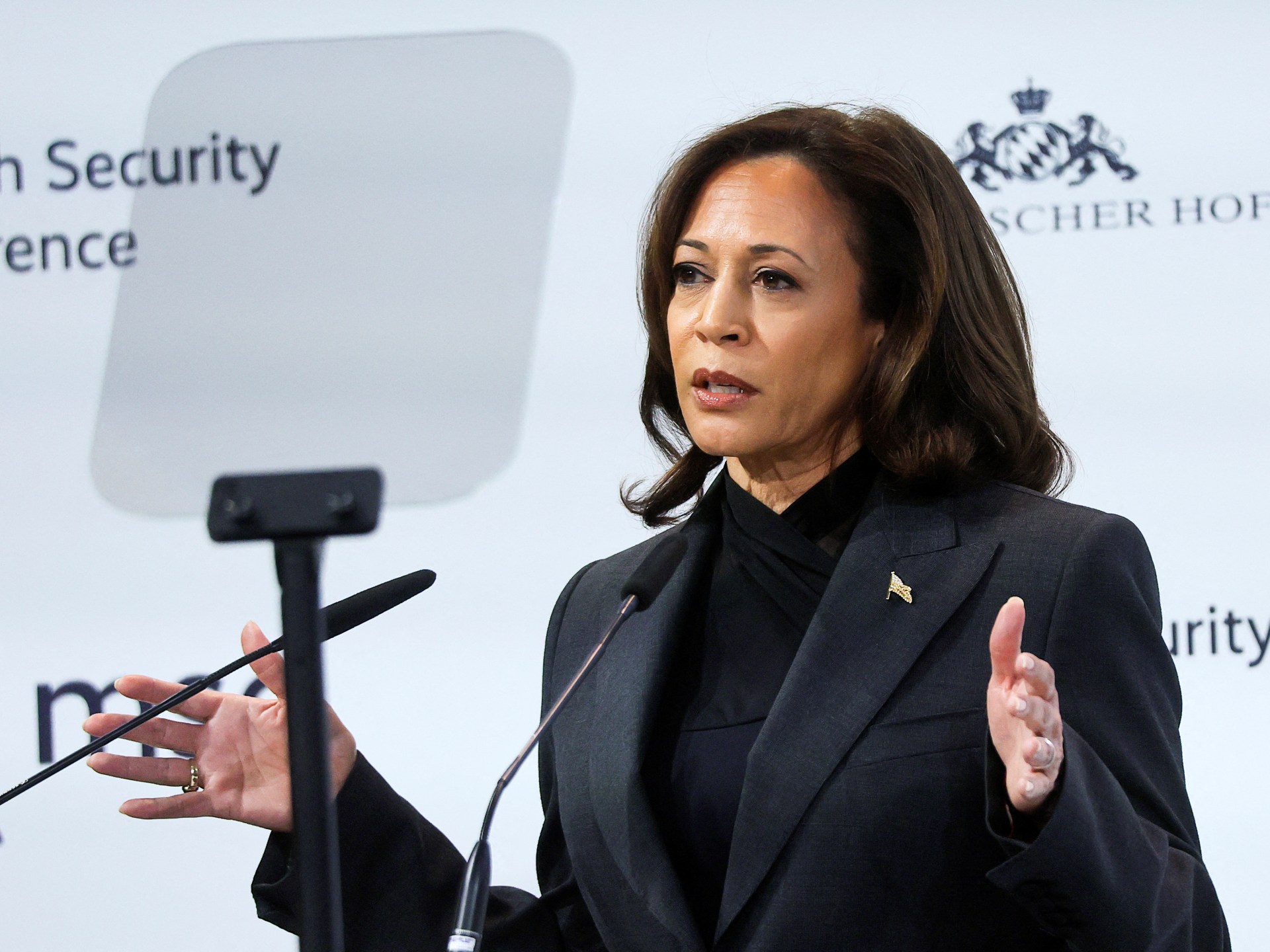The “US is not telling Israel what to do,” Vice President Kamala Harris has stated, as debate over Washington’s stance on the war in Gaza mounts.
Speaking in an interview with CBS on Sunday, Harris stressed that the United States is only providing advice, equipment and diplomatic support to Israel. US troops will not be sent to Israel or Gaza, she added.
US policy regarding the conflict has come under increased focus after Israel’s Prime Minister Benjamin Netanyahu said his country’s war with Hamas has entered its “second stage”.
“A terrorist organisation, Hamas, slaughtered hundreds of young people at a concert … Israel, without any question, has a right to defend itself,” Harris told CBS reporter Bill Whitaker.
“That being said, it is very important that there be no conflation between Hamas and the Palestinians. The Palestinians deserve equal measures of safety and security, self-determination and dignity, and we have been very clear that the rules of war must be adhered to and that there be humanitarian aid that flows,” she said.
Asked whether the war could drag US troops in to fight, Harris said: “We have absolutely no intention nor do we have any plans to send combat troops into Israel or Gaza, period.”
Tit-for-tat
Harris also noted that while the US wants to ensure the conflict does not escalate, it has not been easy.
Her comments came after the US struck facilities in Syria linked to Iran last week, following a series of attacks against US forces in Iraq and Syria.
US Defense Secretary Lloyd Austin has said the strikes in Syria are not connected to the Israel-Hamas war, despite claims that the tit-for-tat attacks came due to Washington’s stance on the Israel-Gaza war.
US President Joe Biden has also told reporters that Washington’s response has “nothing to do” with Israel.
Yet Harris also noted to Whitaker that President Biden has warned Iran not to create a wider conflict.
Diplomatic dissent
Vice President Harris’s comments are in line with the White House stance. But within Washington’s diplomatic corridors there are signs of friction.
Democrats seeking a ceasefire are frustrated over Biden’s continuing steadfast support for Israel amid its blockade and bombardment of Gaza.
US diplomats are reported to be preparing a “dissent cable”. The document, criticising Washington’s policy, will go to State Department leaders.
“There’s basically a mutiny brewing within State at all levels,” one State Department official told the Huffington Post.
Last week, State Department official Josh Paul resigned, citing the Biden administration’s stance on the Israel-Hamas war as a reason.
“Hamas’ attack on Israel was not just a monstrosity; it was a monstrosity of monstrosities … But I believe to the core of my soul that the response Israel is taking, and with it the American support both for that response and for the status quo of the occupation, will only lead to more and deeper suffering for both the Israeli and the Palestinian people – and is not in the long term American interest,” Paul wrote in a Linkedin Post.

‘Dehumanising’
An October 24 unclassified diplomatic cable reported on by VICE News, reveals that the US Office of Palestinians Affairs in Jerusalem had warned the White House of the dire situation facing Palestinians in Gaza and called on Washington to take action.
However, two days later, President Biden cast doubt over the number of people dead in Gaza, saying that he has “no confidence in the number that the Palestinians are using”.
That helped stir further dissent regarding the US’s humanitarian response.
Yara Asi, a Palestinian American public health expert at the University of Central Florida, called the president’s remarks “appalling”.
“To dispute those figures was really, really just putting both feet in with Israel on this, in yet another way that dehumanises Palestinians,” Asi told Al Jazeera.
US Senator Brian Schatz said that he was “deeply concerned” following a near-total communications blackout on Friday.
“There already is a dire humanitarian situation, including dangerous proximity to military operations for civilians and insufficient amounts of food, water, medicine, and fuel,” he said on X.
Signs of response
There are signs that Biden’s administration may be beginning to respond to the criticism.
According to a Washington Post report, Washington pressured the Israeli government to switch communication channels back on.
On Sunday, the White House said that Biden called for “accelerating” humanitarian assistance to Gaza in phone calls with the leaders of Israel and Egypt.
The US leader reiterated to Israeli Prime Minister Benjamin Netanyahu: “Israel has every right to defend its citizens from terrorism and a responsibility to do so in a manner consistent with international humanitarian law which prioritises the protection of civilians.”
In his conversation with Egyptian President Abdel Fattah Al-Sisi, Biden agreed to commit “to work together” in protecting civilian lives and “ensure” that Palestinians in Gaza are not displaced to Egypt or any other nation, the White House said.
Humanitarian aid has trickled into Gaza through the Rafah crossing run by Egypt, the only crossing not controlled by Israel.
However, the UN and other agencies have warned that the current flow of aid to the 2.3 million people in Gaza, is still a “drop in the ocean”.
Sumber: www.aljazeera.com
 Skip to content
Skip to content

